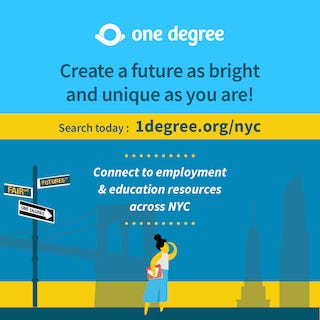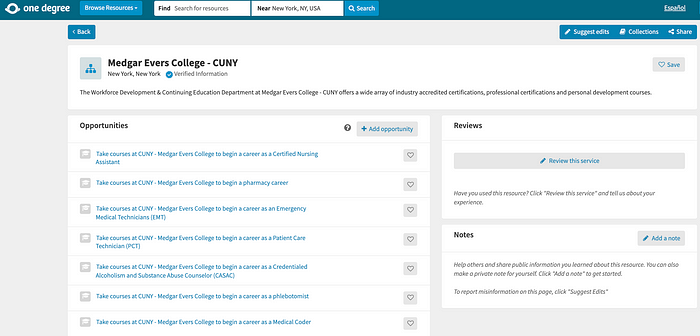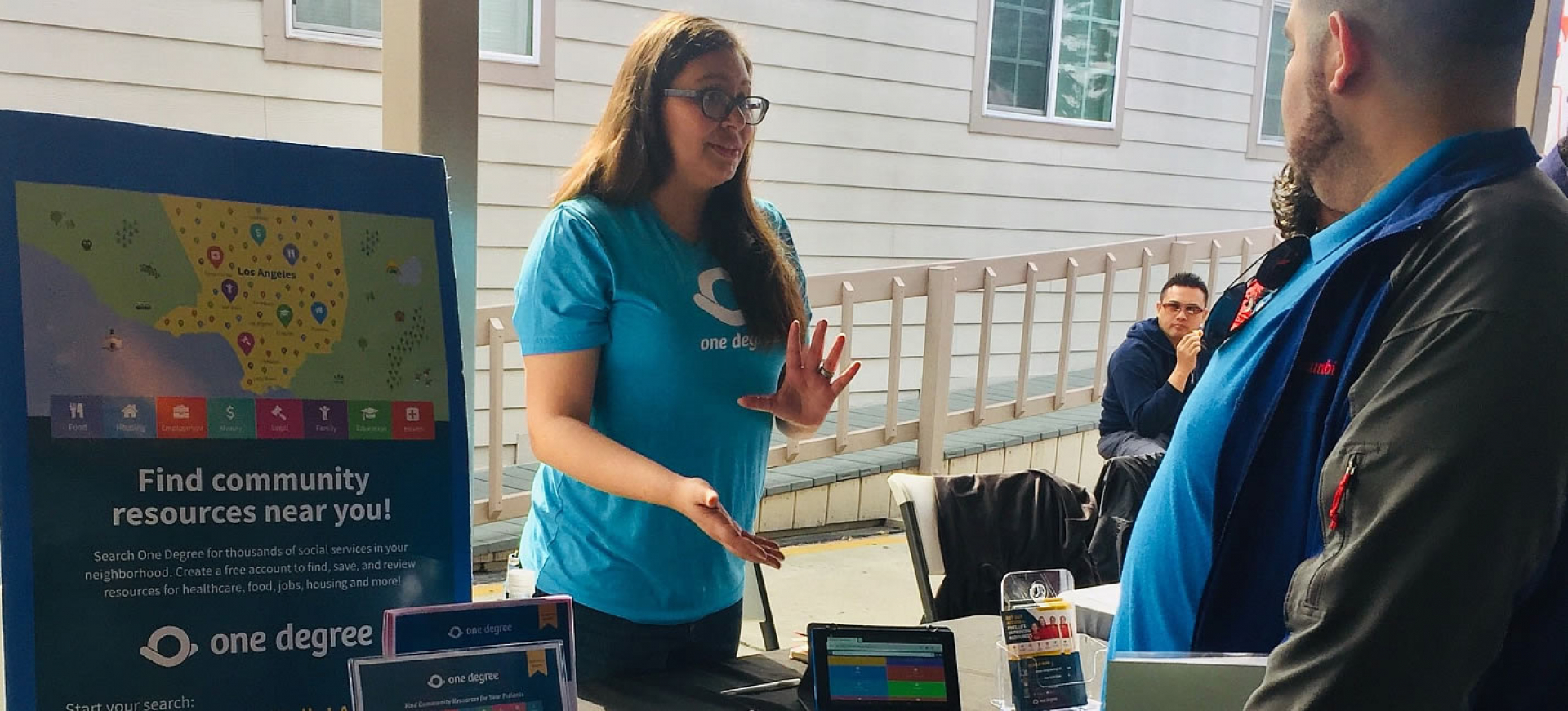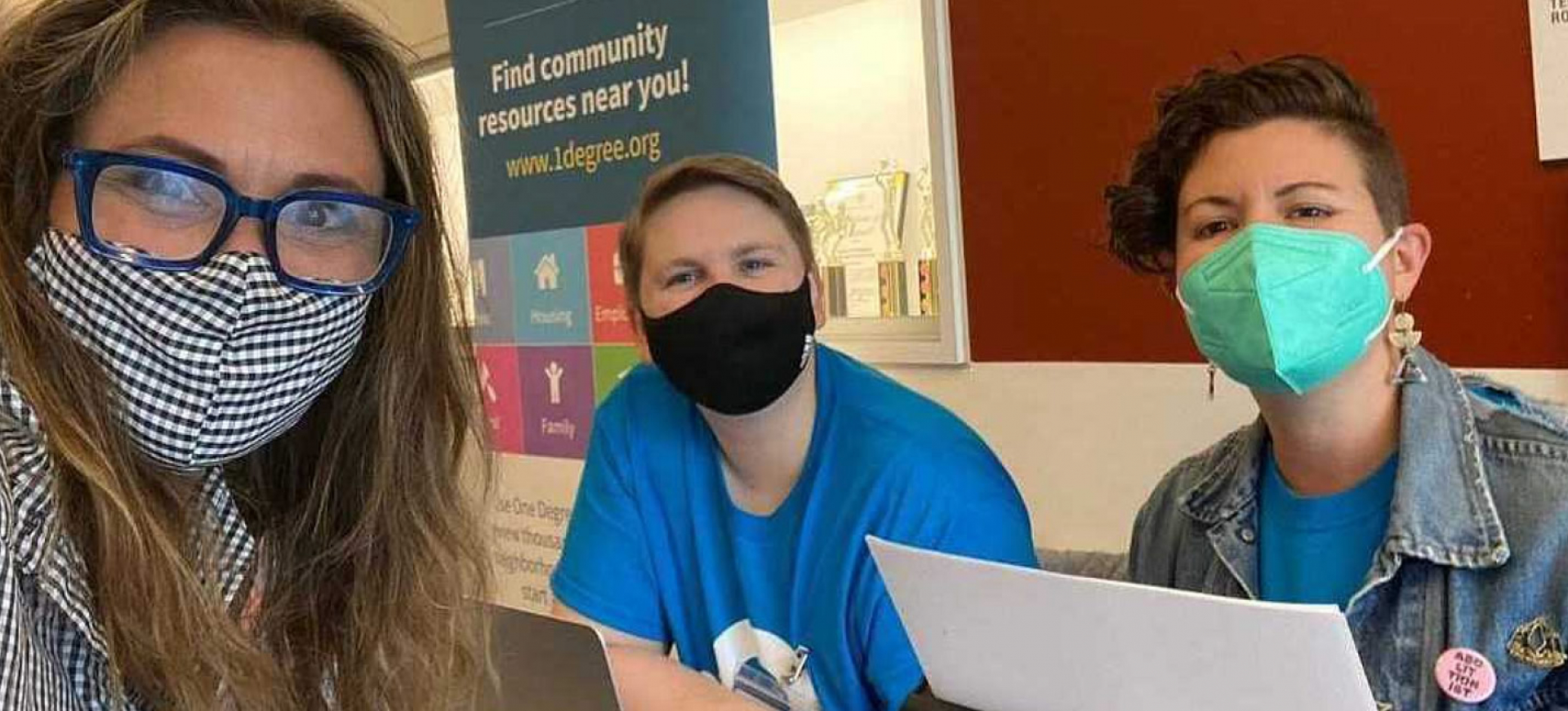Loss of income to pay rent, loss of employment, loss of food security. The COVID-19 (Coronavirus) outbreak has changed our lives in immense ways, and for many the loss of security across the board became imminent.
In mid-March, I, along with the One Degree team began to work completely remotely in response to stay-at-home orders, with the question lingering in all our minds, “What can we do to help?”
The One Degree team came together to brainstorm and plan a response, leading to the creation of a dynamic resource guide for those affected by COVID-19 in the San Francisco Bay Area and Los Angeles County.
A few months have passed and One Degree continues to carry out our mission, and center our community, by mobilizing to improve our resource guide. I’m excited to share with you the next development in our COVID-19 response. With the help of over 20 volunteers we transferred our Resource Guide into a series of Collections on One Degree. You can think of a Collection, as a digital resource binder (here’s an example).
Evolving the Resource Guide into Resource Collections provides the community with an improved experience on our platform — it’s the ideal next step. Here’s why:
Community members can now:
- save a resource using their One Degree account
- track their progress towards accessing a resource in their My Plan section
Service providers can now:
- use our Referrals tool to send resources to clients/patients directly
- check in on clients/patients status to accessing resources
These are all features and tools that our community already has access to when searching for resources on One Degree, and we are thrilled to bring them to our COVID-19 resources.
Evolution of the COVID-19 Resource Guide to Collections
The first phase of our COVID-19 resource guide lived in a Google document that we updated daily with resource listings focused on food support, financial support, and childcare support (three of the most urgent needs identified early on in the outbreak), for all nine counties in the San Francisco Bay Area and Los Angeles County. Community members and partners in the social service sector also started sending us resource information. We quickly realized that we needed to dedicate some of our team members exclusively to this important project, and so we shifted One Degree’s Resource Management department to support our commitment to updating new resource information everyday.
We also realized that we couldn’t do it alone! We received over 100 volunteer applications since March and over 40 volunteers contributed to the first COVID-19 resource guide.
Partnerships with other social service organizations and community groups sharing other guides with us led to the addition of hundreds of resources. We were so thrilled with the incredible amount of support we received. This growth, the expanding collaboration, and the number of people using the guide made us realize that our processes and delivery mechanism needed to change.
The next phase of the Resource Guide offered a mobile-friendly website using an off-the-shelf system that One Degree’s UI/UX Designer quickly customized and made beautiful. We continued to maintain our web pages, adding more and more resources daily. As incredible and comprehensive as this site was, our resource guide became long lists of resources and scrolling through them was challenging. Also, our community didn’t have the ability to save resource information for reference later.
To address these issues, in early May, we set our plan in motion to transfer our COVID-19 Resource Guide into a series of Collections on One Degree. With the support of our volunteer team, resources were transferred to the One Degree platform using the Resource Editing Tool and we were able to make the transition. Our COVID-19 Resource Guide evolution was made possible by volunteers, and we couldn’t be more thankful.
COVID-19 Resource Guide Collaborators
Cal State Los Angeles MPH students. At the onset of the COVID-19 outbreak, a group of Master’s of Public Health students at Cal State Los Angeles created an extensive Google Document, “COVID-19 Los Angeles Mass Resource List,” to address the urgent need to create one site where those in need could find essential community resources. One Degree collaborated with them to grow our LA County resource gathering. We are extremely grateful for their support and contribution. Thank you, Joyce Paraico, Jamila Cervantes, and Xugo Lujan Jr.! (Pictured below)
Xugo also shared some words with One Degree on our collaboration:
I attached a picture of my grandmother and myself. The reason for my investment in identifying resources is to ensure that the most vulnerable, like my grandmother, have the ability to stay safe and healthy. One step is to remove barriers to knowledge of resources. Thank you to everyone at One Degree. You all provide an immeasurable support to folks statewide.
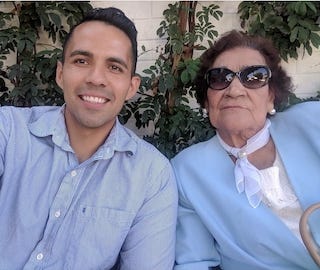
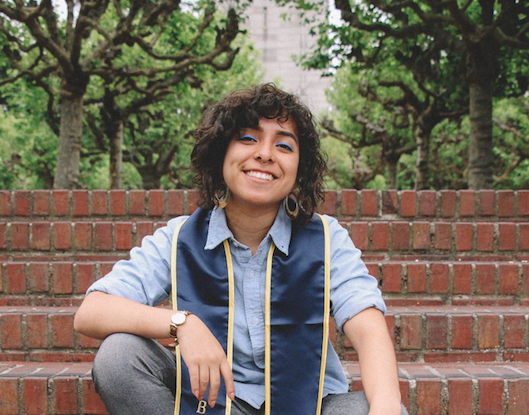
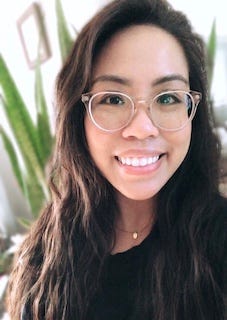
Joyce Paraico
Los Angeles Department of Health Services (LADHS). Our partners at LADHS generously offered some of their team members to work on our LA resources for the guide. Six LADHS staff members joined One Degree’s COVID-19 response by adding resources. Thank you, Stephanie Stone, Angelica Aviles, Lourdes “Ninette” Polanco-Aguilar, Reynaldo Garcia, Jeannette Johnson, and Arieneh Shahverdian!
Volunteers
We are humbled by the number of people who have come forward to support this effort. We would never have been able to offer this resource to the community without their support and dedication. Below are profiles of a few of our amazing volunteers. We love you all!
Zainab Ebrahimi (pictured below) is a Chilean-Iranian software engineer based in Brooklyn, NY. In her spare time she volunteers as a computer science teacher for Code Nation. Zainab is a Spanish translation volunteer for our COVID-19 resource guide.
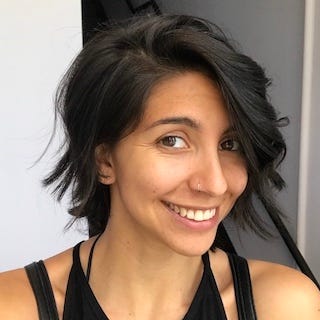
Here’s what Zainab has to say about her volunteer work:
When the pandemic hit the US, I felt a responsibility to contribute however I could to help the people being affected the most. I’m grateful I found One Degree and that they needed someone who was able to translate to Spanish. It makes me happy to know we are able to serve the Spanish speaking community and allow them access to important resources that can help them navigate the COVID-19 crisis.
Eric Joshua Garcia (not pictured) is from Maryland and graduated from the University of Maryland Baltimore County in 2019. He is currently working as a research fellow and, during his free time, he loves cooking, hiking, and photography.
Eric also shared some words with us about his volunteer experience:
Atthe beginning of this pandemic, I immediately began to think of ways I could help (from a safe, social distance). After searching through various virtual opportunities, I came across One Degree’s volunteer page. I was struck by their mission to help people adversely affected by the pandemic and immediately applied to become a COVID-19 resource volunteer. I quickly grew to love the experience since I knew the work we were doing could positively impact someone’s life during their time of need. It truly changed my perspective to see the numerous resources and the outpouring of support from individuals and organizations across California and the rest of the nation.
Dzifa Amexo (pictured below) is a senior at Mercy College studying finance and data analytics. She is currently living in New Jersey with her family and during the school year she lives in Dobbs Ferry, New York. During her free time Dzifa enjoys volunteering, karaoke, data visualization, and traveling.
Dzifa also had some words on her experience as a data volunteer:
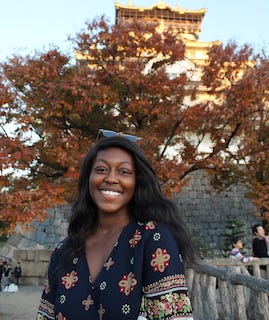
I’ve always been driven to volunteer and give back in any way that I can from a young age. My mission is to leave this earth better than I inhabited it and so I strive to make an impact one person at a time. Knowing that if you pay it forward, hopefully, the circle of generosity will continue. Once my semester was made completely online due to COVID-19, I had a lot of free time being back at home. I thought to myself “how can I help” (well from my computer screen) and came across One Degree as a virtual opportunity. I was inspired to start because of the mission, which is focused on empowerment.
Mauricio Sepulveda (pictured below) is from Chile and has been living in New York for a little over a year. He came to live in the United States because of a job opportunity for his wife and stopped working as an Industrial Engineer in a bank in Chile, he now calls New York home.
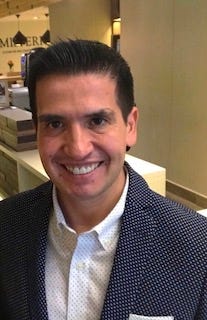
Here’s how Mauricio describes his volunteer work as a Spanish translator volunteer:
Iliked the option of starting to work as a volunteer [with One Degree] since this would help me improve my language, expand my network, and mainly support the Latino community that does not understand English. I have always valued the people who work as volunteers, and I believe that it is part of being an integral professional to be able to dedicate time to help those who need it. Thank you very much for accepting me, so that I can contribute in times of crisis, and when the world needs us more united.
In closing
As One Degree’s Resource Coordinator it has been an unbelievable experience to spearhead our COVID-19 Resource Guide efforts and response. I am amazed at the enormous support we received from the One Degree team, partners and volunteers. It has been incredible to work with so many people motivated to lend a helping hand during a time of crisis. I look forward to continuing our COVID-19 resource guide work for the community!
Questions about our work? Need help finding resources? Contact us at help@1degree.org.


